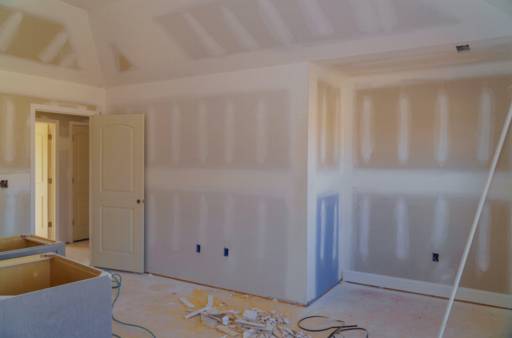Have you ever wanted to enjoy peace and quiet in your own home, free from the disturbances of outside noise? Soundproofing your walls with drywall can be a game-changer when it comes to creating a tranquil living space. In this article, we will explore the various types of soundproofing drywall, innovative materials and techniques for enhanced sound dampening, as well as the costs and considerations involved in upgrading to soundproof drywall. Say goodbye to noise and hello to peace and quiet with these soundproofing solutions.

Understanding the Basics of Soundproofing Drywall
Soundproofing drywall is a specialized type of drywall that is designed to reduce the transmission of sound from one area to another. It is commonly used in residential and commercial buildings to create quieter and more private spaces. Soundproofing drywall works by increasing the mass of the wall, absorbing sound energy, and decoupling the structure to prevent sound vibrations from passing through. By understanding the basics of soundproofing drywall, you can make informed decisions about how to effectively reduce noise in your home or business.
Types of Soundproofing Drywall: Material and Installation
When it comes to soundproofing drywall, there are several types of materials and installation techniques to consider. One common option is adding mass-loaded vinyl to the drywall during installation, which helps to block sound transmission. Another popular choice is using soundproofing compound or panels that are specifically designed to absorb and dampen sound. Additionally, some homeowners opt for double layers of drywall with an air gap in between to create a more comprehensive sound barrier. Ultimately, the type of soundproofing drywall material and installation method chosen will depend on the specific needs and budget of the renovation project.
Innovative Materials and Techniques for Enhanced Sound Dampening
When it comes to enhancing sound dampening in your home, there are a variety of innovative materials and techniques that can be utilized. One popular option is the use of double layers of drywall with a layer of Green Glue damping compound in between. This unique compound helps to absorb and dissipate sound waves, resulting in reduced noise transmission between rooms.
Another effective technique is the use of resilient channels, which are metal strips that are installed between the drywall and the wall studs. These channels help to decouple the drywall from the studs, minimizing the transfer of sound vibrations through the walls.
Additionally, soundproofing membranes can be applied directly to existing walls before installing drywall. These membranes help to block sound transmission and can be particularly effective in reducing airborne noise.
For those looking for a more comprehensive soundproofing solution, soundproof drywall panels are a great option. These panels are specifically designed to minimize sound transmission and can be installed on walls or ceilings for maximum noise reduction.
Overall, there are many innovative materials and techniques available for enhancing sound dampening in your home. By incorporating these solutions into your renovations, you can create a quieter and more peaceful living environment for you and your family.
Costs and Considerations for Upgrading to Soundproof Drywall
When considering upgrading to soundproof drywall, there are a few important costs and considerations to keep in mind. First and foremost, the cost of soundproof drywall itself can be higher than traditional drywall. However, the added benefits of noise reduction may justify the increased expense for many homeowners.
In addition to the cost of the materials, installation of soundproof drywall may also require specialized techniques and skills, which could add to the overall cost of the project. It is important to factor in the cost of hiring a professional contractor if you do not have experience with installing drywall yourself.
Furthermore, it is essential to consider the long-term benefits of soundproof drywall. While the upfront costs may be higher, the improved sound insulation can lead to increased comfort and privacy in your home. This can be especially beneficial for rooms where noise reduction is important, such as bedrooms, home theaters, or music studios.
Lastly, it is important to weigh the costs and benefits of soundproof drywall against other soundproofing solutions. While soundproof drywall may offer superior noise reduction, there are other options available, such as acoustic panels or soundproofing curtains, that may be more cost-effective for certain situations. Ultimately, it is important to consider your specific needs and budget when deciding whether to upgrade to soundproof drywall.
